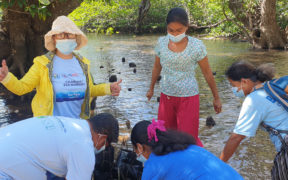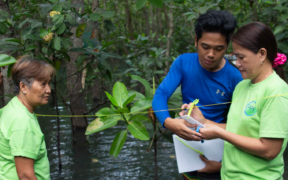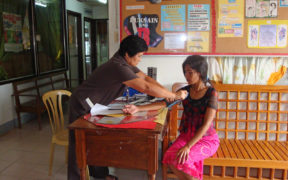Tag:
Philippines

The Twin-Bakhaw project advocates for gender equity via sexual and reproductive health services among indigenous populations. Each newborn will have a “twin” mangrove seedling, which the newborn’s family must plant and nurture until it is fully grown. The project exemplifies the importance of family planning and reproductive health interventions in long-term environmental protection measures. This is part 1 of 2.

The Twin-Bakhaw project advocates for gender equity via sexual and reproductive health services among indigenous populations. Each newborn will have a “twin” mangrove seedling, which the newborn’s family must plant and nurture until it is fully grown. The project exemplifies the importance of family planning and reproductive health interventions in long-term environmental protection measures. This is part 2 of 2.

The Philippines has been a pioneer of programming using the multisectoral Population, Health, and Environment (PHE) approach to improve conservation efforts, family planning, and overall health. A new publication highlights insights and themes from two decades of PHE programming, sharing lessons for others involved in multisectoral approaches.

In October 2020, staff at the Johns Hopkins Center for Communication Programs (CCP) noticed a change in the search patterns bringing people to the Knowledge SUCCESS website. “What is the advocacy message of family planning” had moved up the charts, with a nearly 900% increase over the previous month. 99% of those queries originated in the Philippines due to a UNFPA Philippines warning stating that the country risked a spike in the number of unintended pregnancies if coronavirus-related quarantine measures remained in place until the end of 2020.













